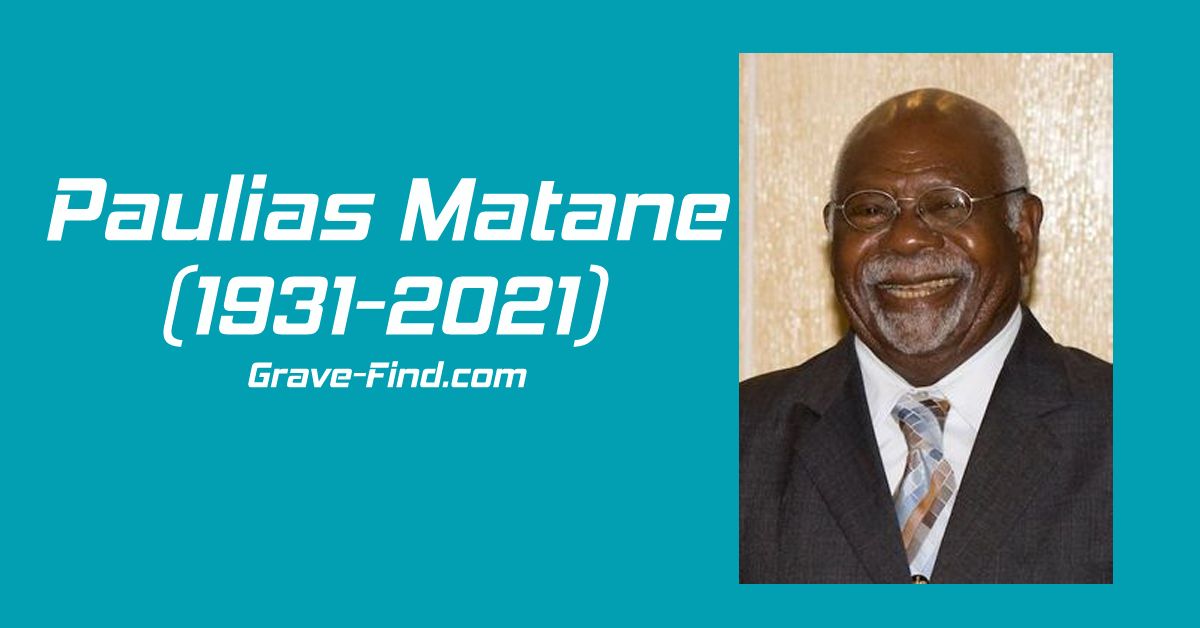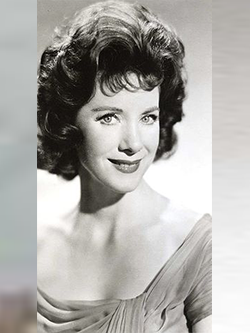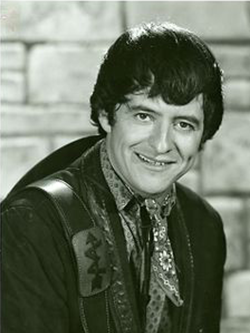Paulias Matane (1931-2021) Guinean Politician
Paulias Matane (1931-2021) Guinean Politician, Paulias Matane dies at 9o year 12 December 2021
| Name | Paulias Nguna Matane |
| Age | 90 Years |
| Birth | 21 September 1931 |
| Birthplace | East New Britain Province, Papua New Guinea |
| Death | 12 December 2021 |
| Deathplace | |
| Profession | 8th Governor-General of Papua New Guinea |
| Spouse | Kaludia Matane |
| Burial | Burial Details Unknown |
| Nationality | Papua New Guinean |
Paulias Matane Guinean Politician (1931-2021)
Papua New Guinean Statesman. He served as the 8th Governor-General of Papua New Guinea from June 29, 2004 to December 13, 2010. He was educated at both Sogeri Teachers College, Port Moresby Teachers’ College and Mendi for Inspector’s Theoretical and Practical Training and later worked as an inspector of schools.
From 1975 to 1976, he served as the first Papua New Guinea ambassador to the United States. He also served as his nation’s ambassador to the United Nations in 1975. During the 1980s, he served in several foreign missions. In 2004, he was elected Governor-General and went on to serve in this position for six years before stepping down after his re-election was declared unconstitutional by the Supreme Court of Papua New Guinea. He also wrote numerous books and a newspaper column.
Paulias Matane Biography
Personal life
Matane was a Tolai from East New Britain Province, a native speaker of Kuanua, and a staunch United Churchman. He wrote 44 books which deliberately use extremely simple English, focusing in part on his own overseas travels, including three on the State of Israel. His writing is intended to persuade Papua New Guineans that books are a useful source of information and that they should not regard them as something only for foreigners.[citation needed]
For many years Matane wrote a column in the Malaysian Chinese-owned newspaper The National, containing advice for the younger generation. He also founded the United News Agency of Melanesia.[citation needed] He, together with Grand Chief the Right Honourable Michael Somare, made a point of wearing a lap-lap (skirt) rather than trousers.[citation needed]
He was married to Lady Kaludia Matane who served her country with “great distinction” and died on 20 December 2016.
Education and early career
Matane attended Toma Village Higher (later Tauran Primary) School and then Keravat High School. Beginning in 1956 he studied at Sogeri Teachers’ College and from 1963 he attended Port Moresby Teachers’ College and Mendi for Inspector’s Theoretical and Practical Training.[citation needed] At the end of his training he worked as an inspector of schools.
Ambassador to the United States and United Nations
Matane served as the first Papua New Guinean Ambassador to the United States in the years 1975–76 following the establishment of diplomatic relations between the two countries. He was also PNG’s Ambassador to the United Nations from 1975 and in 1979 was elected as a vice-president of the General Assembly.
In the mid-1980s he was Secretary of Papua New Guinea’s Foreign Affairs Department and led delegations to Australia to discuss that country’s foreign aid to PNG and negotiated with Indonesia regarding border incursions and refugee problems.
Governor-General
Matane was elected Governor-General by Parliament on 27 May 2004, receiving 50 votes, while his opponent, Sir Pato Kakeraya received 46 votes. Attempts to elect a Governor-General had failed repeatedly for six months before Matane’s election because of constitutional flaws in the nomination process. Following Matane’s election, Kakaraya brought a petition to the Supreme Court of Papua New Guinea, seeking to invalidate the election.
Matane was sworn in on 29 June 2004, although the legal challenge to his election was still ongoing. He was officially invested as Governor-General by Queen Elizabeth II on 13 October 2004. He was reappointed for a second term in June 2010, under what The National called “very controversial circumstances, in an act likely to be challenged in court”.
Specifically, The National reported that there was “conflicting advice from the speaker and the prime minister” regarding the proper procedure for the appointment, and that the government had Matane reappointed by “using section 87(5) of the Constitution, arguing that the absolute majority secured for Sir Paulias meant that the exhaustive secret ballot vote was not required”. The Supreme Court of Papua New Guinea ruled Matane’s reelection unconstitutional in December 2010.






